Ep. 65: Dr. Molly Jahn – Prof. Univ. of Wisconsin-Madison – Dept. of Agronomy; the Nelson Institute; the Global Health Institute; and chairs the Scientific Advisory Council of Energy & Environment @ DOE Oak Ridge Labs ||
.
Dr. Molly Jahn is a professor at the University of Wisconsin-Madison in the Department of Agronomy, the Nelson Institute, and the Global Health Institute, and chairs the Scientific Advisory Council of the Energy and Environmental Sciences Directorate at the US Department of Energy Oak Ridge National Laboratory. Professor Jahn leads a global alliance of research organizations focused on building and testing modern knowledge systems for sustainability. An award-winning teacher and researcher, Jahn also consults globally for business, governments, philanthropic organizations and others.
.
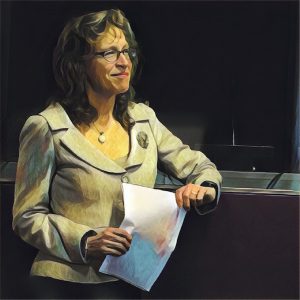 During our 45 minute conversation we gain Dr. Jahn’s perspective on what it’ll take to address climate change on a planet of 7.6 billion people. We also discuss how our current approach in producing food and using water are in fact one of the most pressing National security concerns. Dr. Jahn shares how the Government shutdown at the end of ’18 / early ’19 is impacting real science which so vital in dealing with climate issues in a timely fashion. And, how that science is now losing traction under current governance.
During our 45 minute conversation we gain Dr. Jahn’s perspective on what it’ll take to address climate change on a planet of 7.6 billion people. We also discuss how our current approach in producing food and using water are in fact one of the most pressing National security concerns. Dr. Jahn shares how the Government shutdown at the end of ’18 / early ’19 is impacting real science which so vital in dealing with climate issues in a timely fashion. And, how that science is now losing traction under current governance.
Dr. Molly Jahn has previously served as dean of the University of Wisconsin’s College of Agricultural and Life Sciences, and Director of the Wisconsin Agricultural Experiment Station. From 2009-10, she served as Deputy and Acting Under Secretary of Research, Education, and Economics at the U.S. Department of Agriculture. Jahn has >100 peer-reviewed publications and >60 active commercial licenses. She has numerous awards, fellowships and lectureships for her research, teaching and outreach. In 2014, she was named the first Lilian Martin Fellow at the University of Oxford’s Martin School. Her innovative approaches to inter-sector partnership, engagement with emerging institutions and integrated large projects focused on impact and technology transfer have been highlighted in a number of studies and books. She has served on numerous boards and scientific advisory panels around the world including the US National Academies of Science Board on Agriculture & Resources, NASA’s Applied Sciences Advisory Council.
.
It was an honor getting to speak with Dr. Molly Jahn about food, science, the climate and about the power of hope and potential. TuneIn to hear more.
.


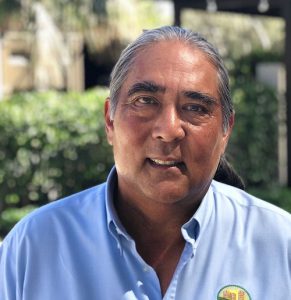 A.G. Kawamura is third generation fruit and vegetable grower and shipper from Orange County. He is the former Secretary of the California Department of Food and Agriculture (2003-2010). As a progressive urban farmer, A.G. has a lifetime of experience working within the shrinking rural and urban boundaries of Southern California. Through his company, Orange County Produce, LLC, he is engaged in building an exciting, interactive 21st century 100 acre agricultural showcase at the Orange County Great Park in Irvine, CA.
A.G. Kawamura is third generation fruit and vegetable grower and shipper from Orange County. He is the former Secretary of the California Department of Food and Agriculture (2003-2010). As a progressive urban farmer, A.G. has a lifetime of experience working within the shrinking rural and urban boundaries of Southern California. Through his company, Orange County Produce, LLC, he is engaged in building an exciting, interactive 21st century 100 acre agricultural showcase at the Orange County Great Park in Irvine, CA.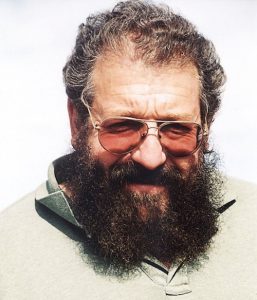 Bernard Rollin is a distinguished professor of philosophy, animal sciences, and biomedical sciences at Colorado State University. Rollin is a leading scholar in animal rights and animal consciousness. Dr. Rollin has authored numerous influential books in the field, including Animal Rights and Human Morality (1981), The Unheeded Cry: Animal Consciousness, Animal Pain and Scientific Change (1988), Farm Animal Welfare (1995), and Science and Ethics (2006). Bernie joins us for episode 59: Our Animal Consciousness.
Bernard Rollin is a distinguished professor of philosophy, animal sciences, and biomedical sciences at Colorado State University. Rollin is a leading scholar in animal rights and animal consciousness. Dr. Rollin has authored numerous influential books in the field, including Animal Rights and Human Morality (1981), The Unheeded Cry: Animal Consciousness, Animal Pain and Scientific Change (1988), Farm Animal Welfare (1995), and Science and Ethics (2006). Bernie joins us for episode 59: Our Animal Consciousness. With his wife Anne Biklé, David is currently framing out his fourth book. We learned that with “What your food eats” – working title of this latest deep dive – this husband & wife writing duo seek to connect soil fertility to human health. Anne and David have also worked together to pen the book ‘Dirt’ —about the plight of soil and what we’ve done to it since the dawn of agriculture. And, ‘The Hidden Half of Nature’, a revealing exploration of how microbial life underpins the health of soil and, even our own bodies.
With his wife Anne Biklé, David is currently framing out his fourth book. We learned that with “What your food eats” – working title of this latest deep dive – this husband & wife writing duo seek to connect soil fertility to human health. Anne and David have also worked together to pen the book ‘Dirt’ —about the plight of soil and what we’ve done to it since the dawn of agriculture. And, ‘The Hidden Half of Nature’, a revealing exploration of how microbial life underpins the health of soil and, even our own bodies.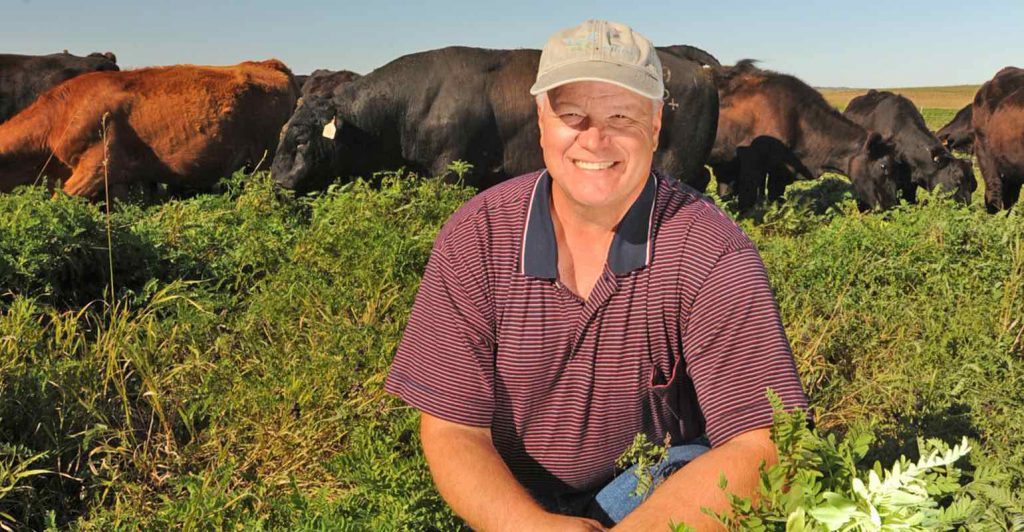
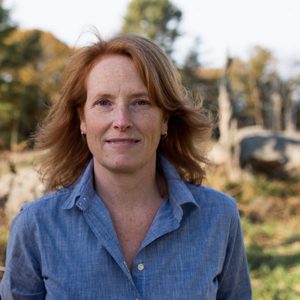 In our 45 minute conversation we discuss the ins and outs of investing in regional and sustainable food systems of the Northeast and beyond. CEI is a mission-driven lender and investor specializing in rural business development and financing. In Maine, and throughout the U.S., CEI helps to create economically and environmentally healthy communities in which all people, especially those with low incomes, can reach their full potential. CEI is unique with its dossier of offerings which include business loans, micro-loans, new market tax credits, sub-debt loans, SBA 504 loans, business plans, marketing plans, business advising, financial advising, and public policy leadership.
In our 45 minute conversation we discuss the ins and outs of investing in regional and sustainable food systems of the Northeast and beyond. CEI is a mission-driven lender and investor specializing in rural business development and financing. In Maine, and throughout the U.S., CEI helps to create economically and environmentally healthy communities in which all people, especially those with low incomes, can reach their full potential. CEI is unique with its dossier of offerings which include business loans, micro-loans, new market tax credits, sub-debt loans, SBA 504 loans, business plans, marketing plans, business advising, financial advising, and public policy leadership. Joining us for the 45 minute discussion is The Carrot Project founder and Executive Director Dorothy Suput. Suput’s commitment to a sustainable food system grew out of the incredible contrasts between Midwestern agriculture, with which she grew up, and the locally focused food and farming system in Switzerland, where she lived after graduating with a BS from Purdue University. Following graduate school at Tufts, Dorothy worked as the first regional organizer on the 1995 Farm Bill for the Northeast Sustainable Agriculture Working Group under the auspices of the Campaign for Sustainable Agriculture, and subsequently, as a consultant for business and agency.
Joining us for the 45 minute discussion is The Carrot Project founder and Executive Director Dorothy Suput. Suput’s commitment to a sustainable food system grew out of the incredible contrasts between Midwestern agriculture, with which she grew up, and the locally focused food and farming system in Switzerland, where she lived after graduating with a BS from Purdue University. Following graduate school at Tufts, Dorothy worked as the first regional organizer on the 1995 Farm Bill for the Northeast Sustainable Agriculture Working Group under the auspices of the Campaign for Sustainable Agriculture, and subsequently, as a consultant for business and agency.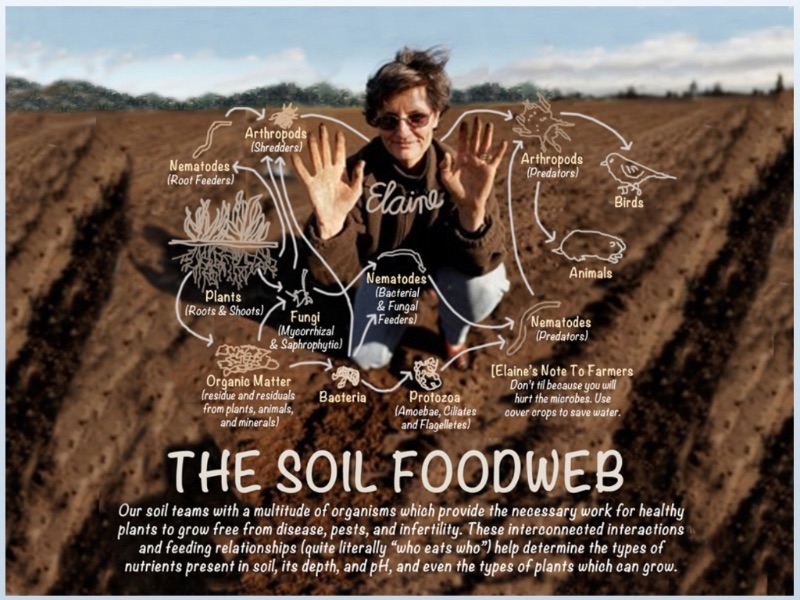
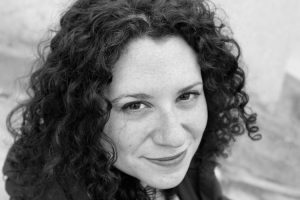 Bringing 24,000 concert goers to Hartford in September- the 2018 Farm Aid event was a smashing success. Featuring Farm Aid founder Willie Nelson, John Mellencamp, Dave Matthews, Neil Young, Sturgill Simpson and many more – this gathering amplifies the needs, and helps define current state of farming in this county. Alicia Harvie and Jennifer Harvie describe their moving experiences during both the main concert event and the field visits and pavilion days leading up to the top billing.
Bringing 24,000 concert goers to Hartford in September- the 2018 Farm Aid event was a smashing success. Featuring Farm Aid founder Willie Nelson, John Mellencamp, Dave Matthews, Neil Young, Sturgill Simpson and many more – this gathering amplifies the needs, and helps define current state of farming in this county. Alicia Harvie and Jennifer Harvie describe their moving experiences during both the main concert event and the field visits and pavilion days leading up to the top billing.